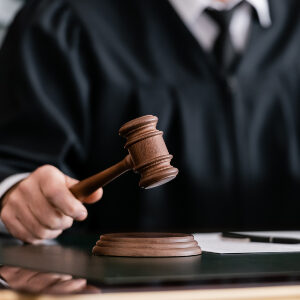Steps to Take After a Drug Probation Violation
 In 1972, President Richard Nixon branded drug abuse as public enemy number one. As the United States expands its research and legislation into what the nation terms the “War on Drugs,” there have been increases in drug-related arrests and incarcerations. For example, in 2019, there were 171,000 drug-related incarcerations in the United States. Many more cases have resulted in drug-related probation sentences.
In 1972, President Richard Nixon branded drug abuse as public enemy number one. As the United States expands its research and legislation into what the nation terms the “War on Drugs,” there have been increases in drug-related arrests and incarcerations. For example, in 2019, there were 171,000 drug-related incarcerations in the United States. Many more cases have resulted in drug-related probation sentences.
In California, incarceration is not the only punishment available for drug violations. The two main non-jail sentences are probation and conditional discharge. If you have been on drug-related probation before, violating this arrangement may trigger the court to impose a sentence. The following guide covers what you should do after a drug probation violation in California.
What Is a Drug Probation Violation?
Probation is one of the non-jail sentences issued after a drug-related violation. If you;ve been found to have committed a misdemeanor, you may fall into two basic categories: Standard misdemeanors, which punishable by up to 6 months in jail and/or a fine of up to $1,000, and
“gross” or “aggravated” misdemeanors,” which are punishable by up to 364 days in jail and/or a fine of up to $1,000 or more. If you have been found to have committed a felony, you may receive 5 years of probation. It is vital to note that these sentences may vary, especially when drug charges are coupled with other serious offenses such as sexual or child abuse.
So, what is probation? Put simply, probation occurs when offenders must regularly report to their assigned probation officers. These supervised programs ensure that community members are protected from a drug offender’s further criminal conduct. Most defendants are required to check in with their probation officer weekly, monthly, or every couple of months.
For your probation to be successful, you must always report to your probation officer as was initially stipulated. Often, defendants are prohibited from drinking, meeting with other criminal defendants, or disobeying their probation officers. For example, as a drug offender, you might be asked to take a drug test by the probation officer. Failure to follow these orders may have dire consequences.
Types of Drug Probation Violations
In California, a probation violation occurs when a defendant is convicted of a crime, given probation, and subsequently violates that probation. California Penal Code 1203.2 PC states these rules apply to the following groups:
“…(1) released on probation under the care of a probation officer pursuant to this chapter, (2) released on conditional sentence or summary probation not under the care of a probation officer, (3) placed on mandatory supervision pursuant to subparagraph (B) of paragraph (5) of subdivision (h) of Section 1170, (4) subject to revocation of post-release community supervision pursuant to Section 3455 PC, or (5) subject to revocation of parole supervision pursuant to Section 3000.08…”
Drug probation violations occur when you fail to follow the basic rules that have been stipulated by the court of law. If you perform a probation violation, the court may issue a new sentence for the new offense. The following are the major drug probation violations:
- Failing to appear in court: When under probation, you are expected to make regular court appearances so that your progress can be reviewed. A violation may occur if you fail to meet these obligations.
- Failing a drug test: As can be expected, you cannot fail a drug test when under drug probation. These tests are usually random and commonplace during the probation period.
- Engaging in criminal activity: When under probation, you should not commit any crime. This scenario may occur with or without your knowledge and may lead to sentence suspicion.
- Ignoring your probation officer: As earlier stated, your probation officer is tasked with supervising your progress when under probation. The main duties of these officers entail making rehab recommendations, undertaking drug tests, and locating offenders.
- Leaving the state without permission: While on probation, you cannot leave the state without permission from the probation officer. Not following this rule is considered a probation violation.
- Not paying for victim restitution: Sometimes, a court may ask you to perform restitution when you have been found guilty of a drug-related felony. Failure to perform this action is a drug probation violation.
- Holding a firearm: Finally, you are prohibited from holding a firearm when under probation that was issued after a drug-related felony. You may also receive firearm restrictions when you perform misdemeanor crimes, and going against this rule can have dire consequences.
Violating your drug probation can have serious consequences, and a criminal defense lawyer may be necessary to help resolve your violations.
The Process After a Violation of Your Drug Probation
When you violate your probation terms and conditions, the court may initiate the revocation process. Revocations are accompanied by trials or small hearings. During the hearings, probationers can be present, call witnesses to the stand, and work with attorneys. When the court hears a probationer’s violation case, it then determines whether to impose further penalties or revoke the probation altogether.
If you have violated drug probation, the odds are often stacked against you. The prosecutor handling your case only shows that you were more likely than not to violate your probation. They do not have to prove beyond reasonable doubt that you did it. Besides, no jurors are needed during such hearings, putting you at a further disadvantage.
Probationers who have been found guilty of drug probation violations can receive sentences. For example, the court may revert to the initial sentencing that it replaced with probation, ask you to pay a fine, or serve jail time. Other sentences are extended probations or the imposition of new probation terms. The best thing is to contact your criminal lawyer first to take you through the court hearing process regardless of the sentencing.
Contact a California Probation Attorney for Help With Your Probation Violation
When faced with a drug probation case, your best move is to contact your criminal defense lawyer to avoid severe punishment. The length of any potential probation depends on the seriousness of your offense. The major problem with drug probation violations is that they may lead to revocations in courts of law. You should speak to a qualified criminal lawyer to represent you during the hearing process.
At Aron Law Firm, we pride ourselves on being skilled and renowned criminal defense attorneys in California. We have a client-centered approach to our work, and we take time to understand each client’s needs. You can fill out our contact form or call us at (805) 618-1768 for further assistance.

EXPERTLY REVIEWED BY
William M. Aron
July 22, 2022
Former Deputy District Attorney William Aron received his Juris Doctorate from the Duke School of Law and has amassed 20 years of experience practicing law. Attorney Aron dedicates his practice to defending the accused, and is devoted to keeping his clients out of prison.

